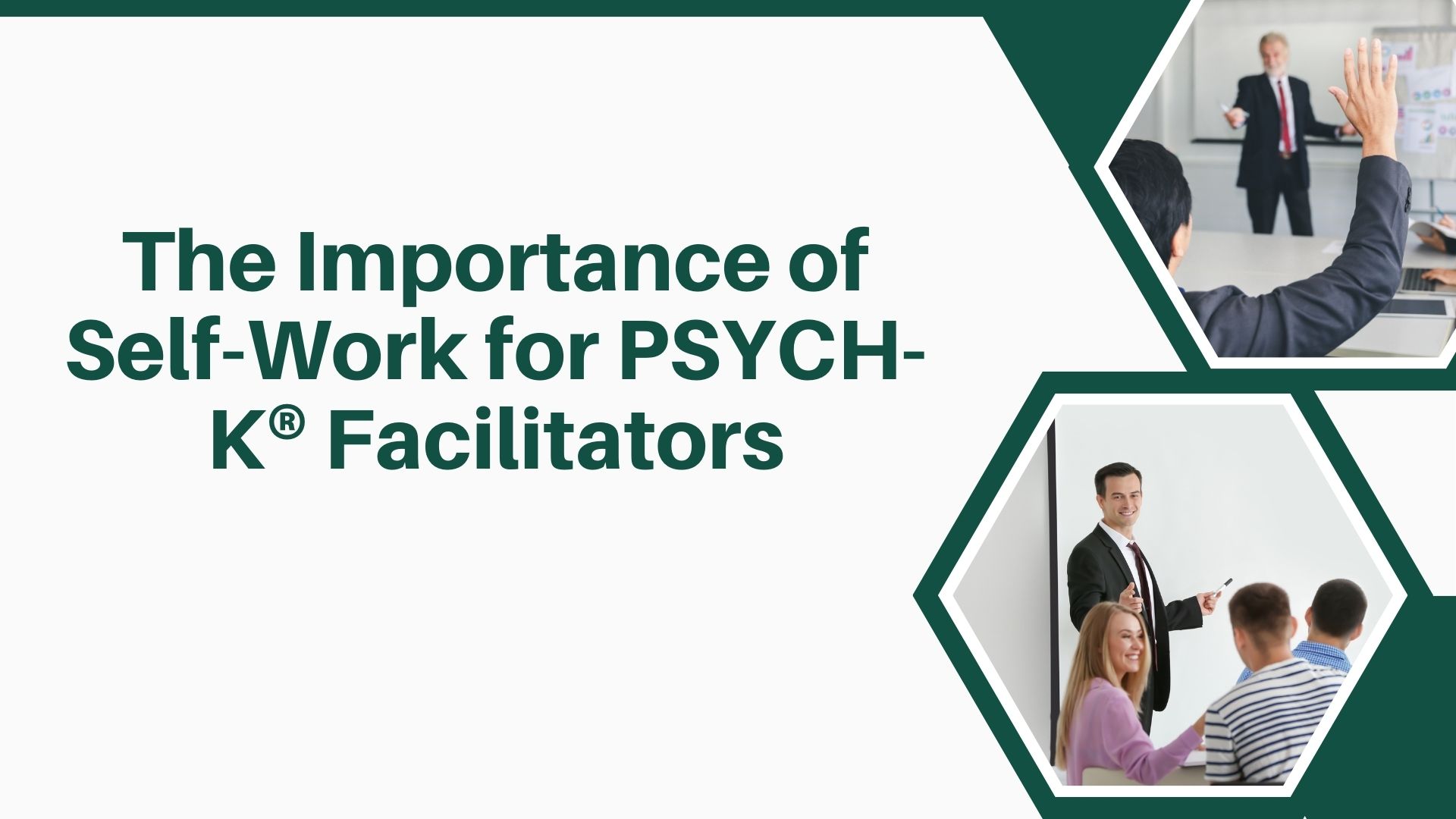Introduction
PSYCH-K® is a transformative process that helps individuals reprogram limiting subconscious beliefs, enabling them to achieve their full potential. As facilitators, the ability to guide others through this process hinges on their own self-awareness, clarity, and alignment. Self-work is not just an optional practice but a foundational necessity for PSYCH-K® facilitators to maintain authenticity, effectiveness, and emotional balance.
Why Self-Work is Essential for Facilitators
Authenticity and Integrity
Clients seeking PSYCH-K® facilitation often look for someone who embodies the very transformation they wish to experience. A facilitator who has engaged in deep self-work demonstrates integrity and authenticity, making their presence more impactful. When facilitators work on their own subconscious beliefs, they can more genuinely connect with clients and inspire confidence in the process.
Clearing Personal Limiting Beliefs
Even facilitators have subconscious blocks and limiting beliefs that can interfere with their work. Engaging in continuous self-work allows facilitators to identify and shift their own challenges, ensuring they approach sessions with an open, unbiased mindset. This practice prevents personal beliefs from subtly influencing client outcomes.
Enhancing Intuition and Clarity
A facilitator’s intuition plays a crucial role in guiding clients through PSYCH-K® processes. Regular self-work helps clear mental clutter, making it easier to trust and strengthen intuitive abilities. Clarity in thought and intention allows facilitators to ask the right questions and offer insightful perspectives during sessions.
Emotional Resilience and Energy Management
Facilitators often work with clients who bring emotional baggage, trauma, and deep-seated fears. Without proper self-work, facilitators may absorb or mirror these energies, leading to burnout or emotional fatigue. Practices such as meditation, energy clearing, and ongoing PSYCH-K® balances help maintain emotional resilience and energetic balance.
Improved Communication and Presence
A facilitator’s ability to communicate effectively and hold space for clients is enhanced through personal self-work. When facilitators have resolved their own triggers, they can listen more deeply, respond with greater compassion, and create a safe environment for transformation.
Ways to Engage in Self-Work as a PSYCH-K® Facilitator
Regular PSYCH-K® Balances
Facilitators should regularly perform balances on themselves to ensure they are operating from a state of alignment and clarity. This helps them stay attuned to their own growth while refining their facilitation skills.
Mindfulness and Meditation
Practicing mindfulness and meditation enhances self-awareness and emotional regulation. It allows facilitators to observe their own thoughts and feelings without attachment, fostering a deeper understanding of their inner world.
Journaling and Reflection
Maintaining a journal to document personal breakthroughs, challenges, and insights can be a powerful tool for self-discovery. Reflection helps facilitators track progress and identify recurring patterns that may need attention.
Continued Learning and Development
PSYCH-K® facilitators should engage in ongoing education, whether through advanced PSYCH-K® training, reading, or exploring complementary modalities. Growth is a continuous journey, and staying informed enhances both personal and professional effectiveness.
Seeking Support and Community Engagement
Connecting with other PSYCH-K® facilitators or mentors can provide fresh perspectives and accountability. Engaging in group discussions, workshops, or mastermind sessions fosters a supportive environment for continuous improvement.
Conclusion
Self-work is the cornerstone of being an effective PSYCH-K® facilitator. By committing to their own transformation, facilitators not only enhance their ability to guide others but also embody the essence of PSYCH-K® principles. As facilitators evolve, they naturally attract more clients who resonate with their authenticity and commitment to growth. Prioritizing self-work ensures that they continue to be a beacon of change and empowerment in the lives of others.










